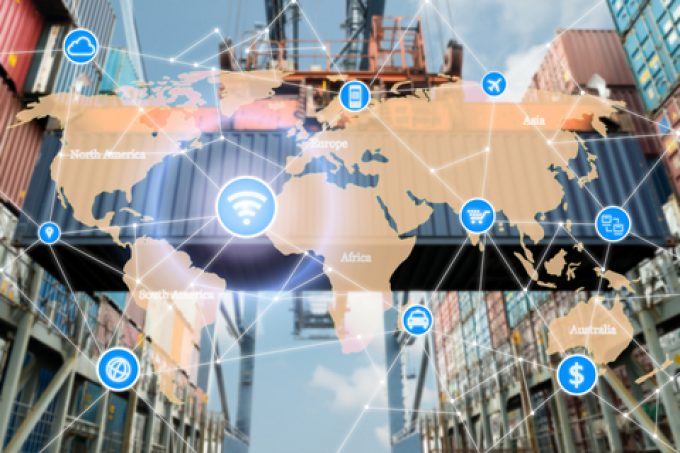Port single windows will cut 'unfair' box line levies
The deployment of digital ‘single windows’ in ports has the potential to bring considerable improvements ...
GM: RAISING THE ROOF GGM: IN FULL THROTTLE GZIM: MAERSK BOOST KNIN: READ-ACROSSMAERSK: NOT ENOUGHMAERSK: GUIDANCE UPGRADEZIM: ROLLERCOASTERCAT: HEAVY DUTYMAERSK: CATCHING UP PG: DESTOCKING PATTERNSPG: HEALTH CHECKWTC: THE FALLGXO: DEFENSIVE FWRD: RALLYING ON TAKEOVER TALKODFL: STEADY YIELDVW: NEW MODEL NEEDEDWTC: TAKING PROFIT
GM: RAISING THE ROOF GGM: IN FULL THROTTLE GZIM: MAERSK BOOST KNIN: READ-ACROSSMAERSK: NOT ENOUGHMAERSK: GUIDANCE UPGRADEZIM: ROLLERCOASTERCAT: HEAVY DUTYMAERSK: CATCHING UP PG: DESTOCKING PATTERNSPG: HEALTH CHECKWTC: THE FALLGXO: DEFENSIVE FWRD: RALLYING ON TAKEOVER TALKODFL: STEADY YIELDVW: NEW MODEL NEEDEDWTC: TAKING PROFIT

The Digital Container Shipping Association (DSCA) has attempted to bring electronic bills of lading (eBLs) a step closer, through a new partnership with the European Shippers’ Council (ESC).
Among the ‘lowest-hanging fruit’ in digitalising the logistics sector, eBLs would dramatically reduce paperwork and, it is thought, the manpower required to process it. However, a universal standard for eBLs must first be established.
This would include agreement on the necessary details, as well as the software format used to transfer them from one company to another.
ESC members will participate in proof-of-concept trials and pilots, as well as sharing knowledge with the DCSA to fine-tune the latter’s proposed standards of data exchange.
“Our members need seamless data exchange across the supply chain to optimally orchestrate the movement of their goods… in the digital realm, this can only be achieved when communication is standards-based,” explained Godfried Smit, ESC secretary general.
“Collaboration with the DCSA is one of the three pillars of our strategy, because its work on standards aligns with our own goals for transparent, stable and resilient supply chains.”
The IMO recently moved to make mandatory the electronic exchange of data for ship clearance in ports, compelling port operators to develop ‘single window’ systems.
“Unstandardised, paper-based processes for exchanging information to conduct business and keep goods moving should not be needed in the 21st century,” said Thomas Bagge, DCSA CEO. “The lack of digitalisation limits progress towards greater transparency and end-to-end real-time cargo visibility.”
But while the benefits of replacing paper bills of lading are intuitively understandable, not everyone is convinced that digitalisation will be a net benefit in every case. One forwarder told The Loadstar it could reduce agility in freight forwarding.
“I think our industry would already be digitalised, if it weren’t so complex,” said Stephan Haltmayer, CEO of Quick Cargo Service. “There are so many parties in between – trucking firms, warehouse companies, freight forwarders.
“Maybe, for the multinationals, it will be a little easier, but midsize companies will need to connect to the rest of the transport chain – many different transport modes, so many different countries, rules and regulations.
“Particularly at the moment, where you don’t have the space agreements you used to. Every shipment takes a long time to get booked; you need to know who is flying where and when. A lot of unforeseen things can happen. At this moment it would be difficult to get everything digital.”
Comment on this article